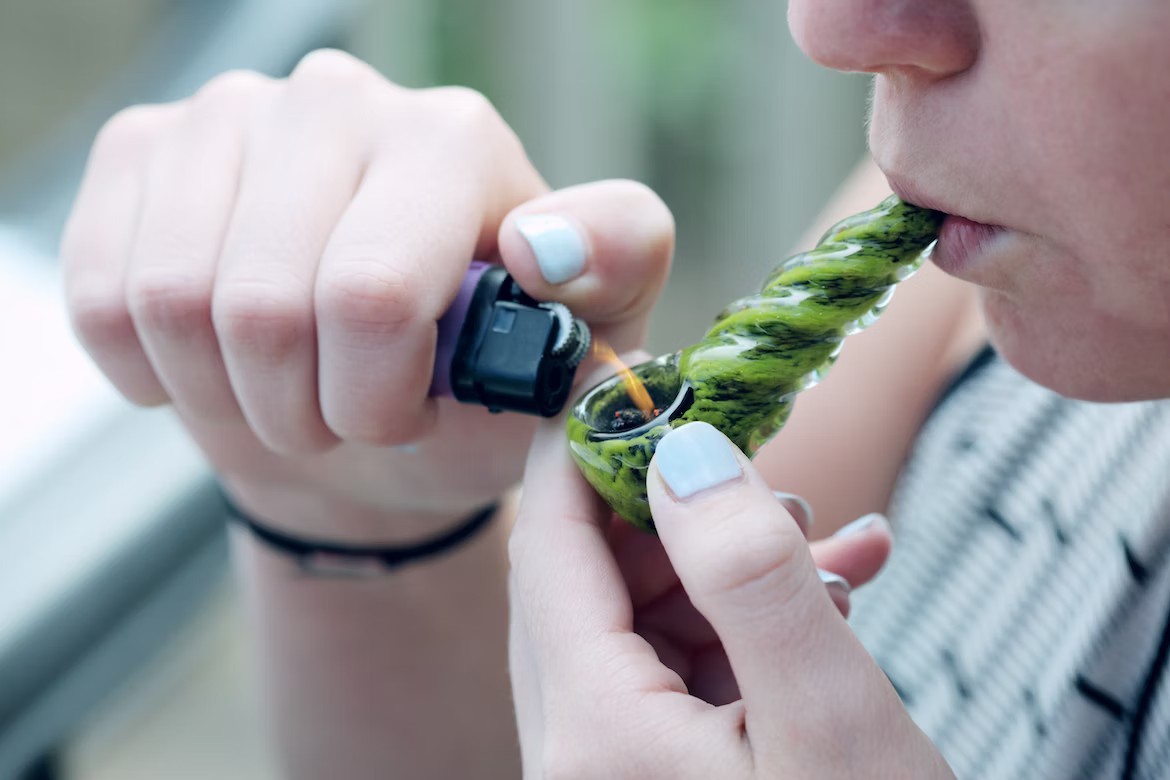As a school administrator, the legalization of cannabis presents a paradox: Is it a step towards personal liberation or a path to potential addiction? From the perspective of creating policies to protect students, it’s essential to take a balanced view.
In South Africa, the Constitutional Court’s landmark ruling in 2018 legalized private use and cultivation of cannabis. Advocates for this legislation celebrated it as a victory for individual freedoms. However, it’s crucial to acknowledge that while cannabis may be legal, it doesn’t mean it’s harmless.
Statistics show that since the legislation change, there’s been an increase in cannabis use among South African youths. The South African Community Epidemiology Network on Drug Use (SACENDU) reports that, as of 2021, 26% of patients seeking treatment for drug abuse in South Africa cited cannabis as their primary substance of abuse. As you grapple with addiction, understanding these implications is crucial.

Decriminalizing cannabis brings benefits, such as undermining illicit drug trade and allowing for better regulation. However, it also raises concerns about increased accessibility, especially for young people. As a school administrator, the focus needs to be on educating students about the potential risks of cannabis use, such as dependency, mental health issues, and cognitive impairment.
Contrary to popular belief, cannabis can lead to addiction. Research indicates that about 9% of those who use cannabis will become addicted to it. This number increases to about 17% for those who start using cannabis in their teens. It’s therefore paramount to ensure young people understand the potential risk of dependency and addiction, even with a substance that is now legal.
Moreover, it’s crucial to acknowledge that legalization doesn’t equate to safety. Alcohol and tobacco are legal substances, yet they cause significant health problems worldwide. The same can occur with cannabis if not used responsibly.
The legalization of cannabis in South Africa presents a paradox: Is it a stride towards liberation or a veiled conduit to addiction? This question becomes particularly poignant when creating policies designed to safeguard students, necessitating a balanced perspective.
Cannabis Liberation: A Brief Overview
In a significant turn of events, South Africa’s Constitutional Court legalized the private use and cultivation of cannabis in 2018. Celebrated as a victory for personal liberties, this decision opened a new dimension in substance use discussions. However, one essential fact remains—though now legal, cannabis is not inherently harmless.
The Flip Side: A Surge in Cannabis Use Among Youths
Evidence points to an increase in cannabis use among South African youths post-legalization. As per the South African Community Epidemiology Network on Drug Use (SACENDU), 26% of patients seeking drug abuse treatment in South Africa in 2021 identified cannabis as their primary substance of abuse.
Frequently Asked Questions
1. Has cannabis use increased since its legalization in South Africa?
Yes, statistics indicate an increase in cannabis use among young people in South Africa following its legalization in 2018.
2. Can cannabis lead to addiction?
Yes, despite common misconceptions, cannabis can lead to addiction. Studies show that about 9% of those who use cannabis will become addicted. This figure rises to approximately 17% for those who start using cannabis in their teens.
3. Are there risks associated with cannabis use?
Indeed, potential risks associated with cannabis use include dependency, mental health issues, cognitive impairment, and, in some cases, physical health issues.
4. How can we educate youths about the potential risks of cannabis use?
Education can be facilitated through school programs, community outreach, and family discussions. These should be aimed at providing evidence-based information on the potential risks associated with cannabis use, including addiction, mental health issues, and cognitive impairments.
5. Does legalization mean that cannabis is safe to use?
Not necessarily. While legalization allows for better regulation and control of cannabis, it doesn’t automatically equate to safety. Just like alcohol and tobacco, which are legal but have significant health risks, cannabis also has potential risks associated with its use.
6. What are the signs of cannabis addiction?
Signs of cannabis addiction can include increased tolerance, using more cannabis than intended, unsuccessful attempts to quit or cut down use, spending a lot of time getting, using, or recovering from the use of cannabis, and continuing to use cannabis despite problems in relationships, work, or school caused by its use.
7. How does the legalization of cannabis affect its perceived harm?
Research has shown that the perceived harm of cannabis can decrease with its legalization. This perception can contribute to increased use, particularly among young people, emphasizing the need for comprehensive education about the potential risks of cannabis use.
8. Can medical cannabis lead to addiction?
Yes, even cannabis used for medical purposes can lead to addiction. Although it’s often prescribed for legitimate medical reasons, misuse can occur, leading to dependency and addiction. It’s important to use medical cannabis as directed by a healthcare provider.
The legalization of cannabis presents a dichotomy between liberation and potential addiction. It’s essential that policies and educational efforts reflect this paradox, highlighting both the legal changes and the potential health risks associated with cannabis use. As we adapt to this new reality, let’s aim to strike a balance between respecting individual freedoms and safeguarding public health, especially the health of our younger generation.
The legalization of cannabis in South Africa and its implications indeed pose a paradox. While it’s a stride towards personal freedom and curtailing the illicit drug trade, the uptick in cannabis use among the youth and the risk of addiction call for utmost caution.
Addressing this issue effectively requires comprehensive, evidence-based educational efforts to demystify cannabis use and its potential health impacts. Students should be equipped with the right information to make informed decisions about cannabis use in the context of its new legal status.
The end goal? A society that respects individual freedoms while also safeguarding public health, especially the health of its young members. This aim becomes increasingly achievable as we continually navigate and understand this complex new reality of legal cannabis.

